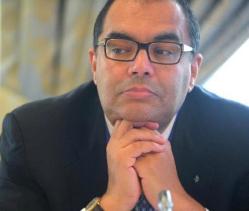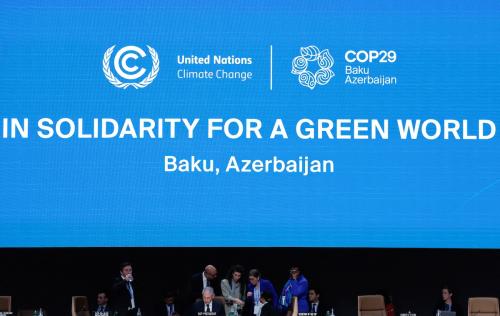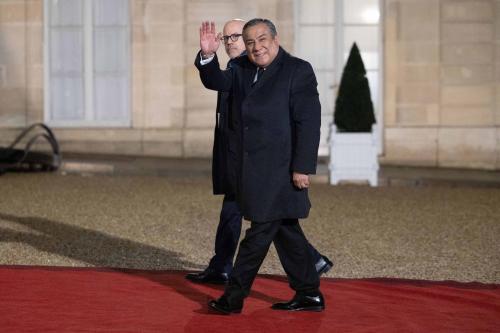Abstract
The great opportunity for the Fourth International Conference on Financing for Development (FfD4) is to integrate development, climate, and nature into a coherent sustainable development program. In a world of geopolitical competition and rapidly changing intellectual approaches, FfD4 is the only forum that can provide a political consensus on an overarching new strategy with equal voice for all member states, so that supportive tactical details can be later worked out in their respective technical arenas.
The first element of this new strategy is to acknowledge and broadly quantify the significant new investments that emerging markets and developing economies (EMDEs) should undertake in the forthcoming one or two decades. FfD4 should shift the discourse from aid to an investment-driven model. The tactical details of designing and executing quality investments, with support from all development partners, can be worked out through country platforms.
The second element is to build a supportive financing strategy with a new approach to private finance and investments. Private finance is multifaceted. When steered through proper channels of blended and mobilized financing packages, private finance can be beneficial. When left unchecked, it can be expensive and volatile. “Know thy investment” principles for responsible private finance should govern private lending to sovereign entities.
The third element is to reset concessional aid for sustainable development and reflect on the role of all multilateral, bilateral, and national development finance institutions. Old aid concepts—including the 0.7% target—must be rethought in a new environment where aid must cover more issues, through more instruments, in more vulnerable countries. Methods and guidelines for effective aid allocation in this new context are needed. In parallel, multilateral and bilateral non-concessional lending can lead the way to expand pools of investable finance in all EMDEs.
Fourth, a fresh approach to fiscal space that encourages high-return, quality investments is needed. There is no chance of successful sustainable development or sustained improvement in creditworthiness without this. The current focus on bringing down debt/GDP ratios below arbitrary thresholds has biased fiscal policy toward underinvesting in human, physical, social, and natural capital and must be changed. An alternative that compares debt to the value of assets that are created through debt-financed investments is preferable.
Combined, these four elements could make FfD4 a turning point for how sustainable development in EMDEs is financed.
The Brookings Institution is committed to quality, independence, and impact.
We are supported by a diverse array of funders. In line with our values and policies, each Brookings publication represents the sole views of its author(s).




